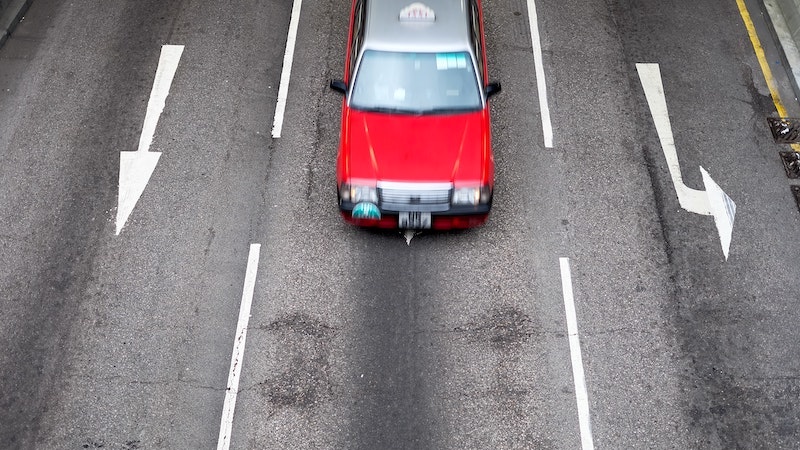Stay in your lane
- 5 October 2022
- Posted by: Michael H Hallett
- Category: Emotional principles ,

One of the pitfalls of a society characterised, as ours is, by emotional immaturity and irresponsibility, is a blurring of boundaries between ourselves and others. As we bring our unconscious to light, excavating programming that undermines us, we gradually expose these inappropriate boundaries. We learn to stay in our lane.
Staying in your lane is all about emotional sovereignty. That means not infringing on others, and not allowing others to infringe on you.
What are boundaries?
Boundaries are the emotional shields that protect us from others and others from us.
If we own a property, that property has a boundary. It delineates what is part of the property and what is not. Energetic boundaries are similar. They demarcate what energies are ours and what aren’t; what issues are ours and what aren’t.
When we feel unheard, that our needs aren’t being met, that our space is being invaded, we lash out. That’s our boundaries being invaded. Conversely, we grasp at others inappropriately to fulfil our needs. Love, affection, attention, money, sex—the list is endless. Here we are the violators, the energetic trespassers.
Boundaries are like the white lines in this photo of a Hong Kong taxi driver. We can swerve into another lane, or someone else might swerve into our lane, but everything runs better when we stay in our lane.
The Patriarchal Operating System
In patriarchal-based societies such as ours, energetic boundaries are weak. This is because we’ve abdicated individual responsibility in favour of an authoritarian social system with externally imposed boundaries.
Historically, our poor boundaries have allowed us to be manipulated into giving up our lives to save the abstract notion of our country. In Britain in World War I, this was done using a poster of an authoritarian man pointing an accusing finger at you, with the caption ‘Your country needs you’.
Now it may be that fighting a war to save democracy is the right thing to do. But notice how shame is used to manipulate people into doing what society’s establishment wants done, healthy or not. In World War II, the Nazis used similar shame-based techniques to radicalise an entire nation into committing atrocities.
Watch the mainstream news and you’ll see that same shame-based manipulation in constant overdrive today, from anti-abortion legislation to compulsory vaccination to cancel culture.
One group is enraged by the beliefs and actions of another. It wants to swerve into their lane and change their behaviour—to literally smash them off the road. It wants to impose its own beliefs—if necessary, by force.
This is a component of what I term the Patriarchal Operating System.
Arrested development
Digging deeper, the lack of appropriate boundaries reflects arrested development of the father-child circuit during childhood.
According to psychologist Timothy Leary, humans have eight development circuits. The most important of these are the mother-child (feminine role-modelling/1st circuit) and father-child (masculine role-modelling/2ndcircuit). Each circuit can only develop to the extent that the previous circuit developed healthily.
Patriarchal societies arose due to climate change negatively impacting the mother-child bond (1st circuit). As a result, humanity has suffered from a degree of arrested development of all circuits ever since.
The father-child circuit is responsible for the development of boundaries and how we negotiate with others for physical and emotional resources. It’s the ‘stay in your lane’ circuit, and most of us swerve all over the place like Friday night boy racers.
Consequently, we can emerge into adulthood with either collapsed or over-extended boundaries. With collapsed boundaries we’re emotional pushovers. We’re easily led and can’t advocate for ourselves.
With over-extended boundaries we do the pushing over. We can’t stay in our lane, no matter how we try. Our interactions with others are freighted with pain. I’ve heard it described as ‘emotional terrorism’.
Stay in your lane
Staying in your lane is all about emotional sovereignty. That means not infringing on others, and not allowing others to infringe on you. It’s a fine line, and a hard path to learn to walk.
The critical lesson is that you are responsible for your feelings, and others are responsible for theirs.
Whether your boundaries are over- or under-extended, the remedy is the same. You must uncover the underlying trauma, accept it, and release it. This trauma may be inherited from recent generations or even stretch back to your distant ancestors.
When we have healthy emotional boundaries, we become emotionally centred and stable. We stop imposing on others and become immune to manipulation by others. We stay in our lane. No more fender-benders. Our emotional insurance bill diminishes.
Follow the example of the Hong Kong taxi driver. Having worked in Hong Kong, I learned to respect them. Stay in your lane.
Photo by Bowen Chin on Unsplash
